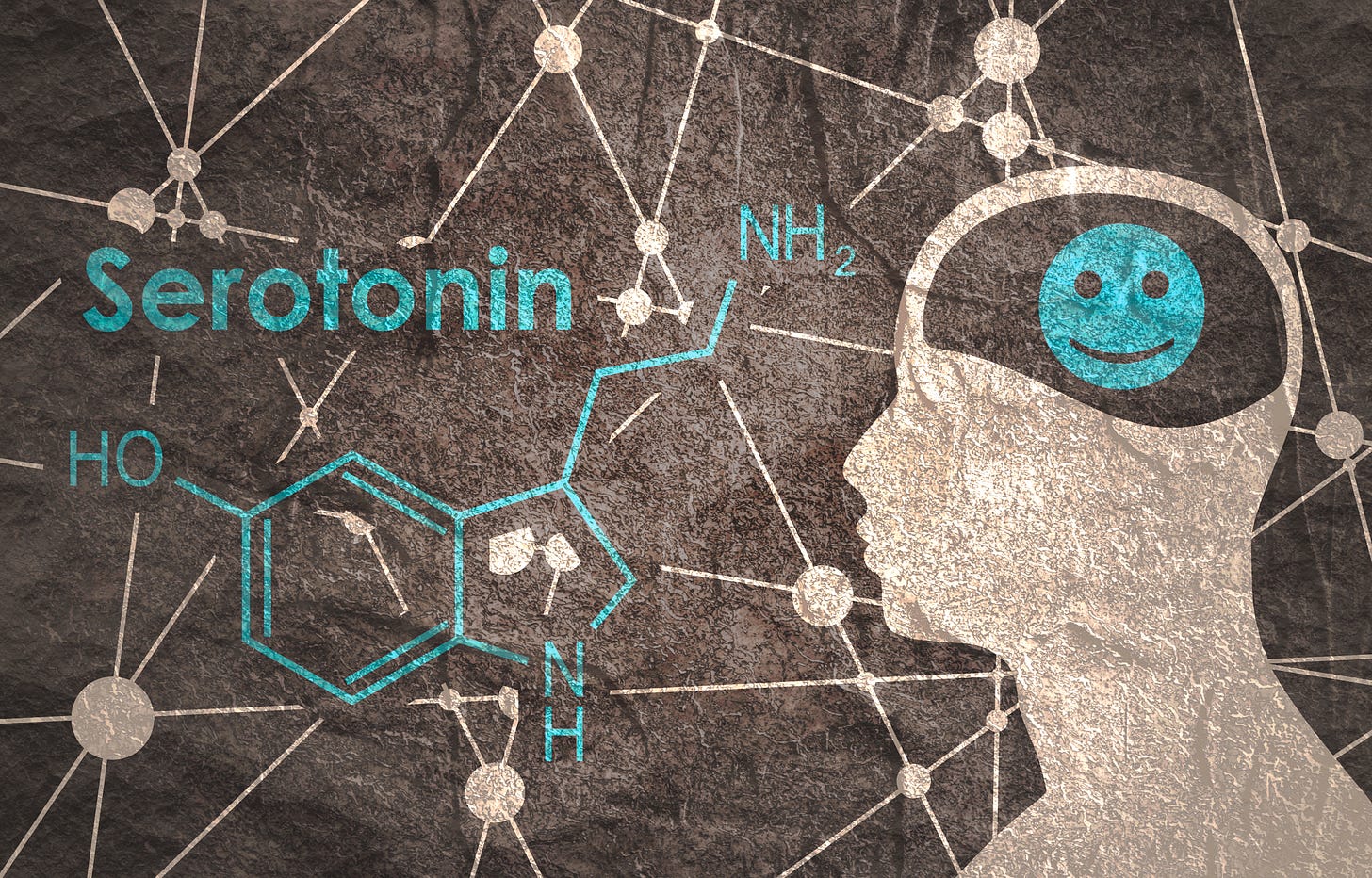Selective serotonin reuptake inhibitors (SSRI) may sound like gibberish to many but are in fact one of the most common drugs on the planet. These SRIs are used in mood disorders, particularly depression. The theory is that block the reuptake of serotonin leaves more between synapses and this in turn can control mood or alleviate a negative mood. Is it really that simple?
Serotonin is associated with mood more than anything and particularly with alleviating depression and anxiety. But as with all things in the brain it is not quite so simple. Serotonin, or 5-hydroxytryptamine (5-HT), if you want to be technically correct, is known as a monoamine neurotransmitter. However, as Wikipedia put it “Its biological function is complex and multifaceted, modulating mood, cognition, reward, learning, memory, and numerous physiological processes such as vomiting and vasoconstriction.”
Serotonin is after all present in many parts of the body but of particular note is that of its role and production in the enteric nervous system, basically the gastrointestinal tract (digestive system). 90% of the body’s serotonin is produced in the GI tract a further 8 % is stored in platelets in the blood (which absorb this from the GI tract) and only 1-2% is present in the brain. However, the brain and body serotonin systems can be seen is separate systems with little to no influence on each other (the brain and body always exert some influence on each other).
In the body it has numerous functions but of interest is its role in wound healing one acting as a vasoconstrictor helping to close vein and arteries in wounds but also stimulating cell growth. Directly in the gut serotonin has an expelatory effect and can lead to diarrhoea- serotonin in present in many seeds which is why they also have a healthy effect on bowel movements. Interesting to note is also that serotonin is present in many insect and animal venoms, and this helps stimulate pain!
But back to our area of interest, the brain. What does serotonin do in the brain?
Keep reading with a 7-day free trial
Subscribe to leading brains Review to keep reading this post and get 7 days of free access to the full post archives.




